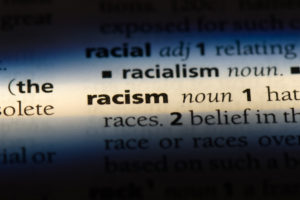The Wall Street Journal (6/10, A5, Koppel) reports, "The U.S. Supreme Court’s decision this week calling for judges to stay out of cases involving big political donors confronts the growing role of money in the U.S. judicial system." The Journal adds, "Political donations to judicial candidates at the highest state courts have soared in recent years, creating concerns that money is eroding public confidence in the system." Opponents of that system "say states should enact such reforms as requiring taxpayers to underwrite judicial races" or "scrap contested elections in favor of appointing judges to the bench, which is the practice of some states."
Massey ruling seen as giving states ability to develop stringent recusal standards. The Charleston Gazette (6/9, Knezevich) reported that campaign finance reform supporters in West Virginia "hope the U.S. Supreme Court’s decision involving state Supreme Court Chief Justice Brent Benjamin will spur action on public-finance legislation and changes to the state’s donor disclosure rules." Bert Brandenburg, director of the national organization Justice at Stake, said, "The Supreme Court opinion left the door open for all states to develop more stringent recusal standards." He added, "Now [it is] up to each state to fill in the finer points."
Washington Post weighs in on Massey ruling. The Washington Post (6/10) editorializes, "The Supreme Court ruled this week that a victorious judicial candidate who receives extraordinary assistance from a donor should step aside from deciding cases that are ‘pending or imminent’ in which the donor has a substantial stake." The Post says, "The decision raised more questions than it answered, but it should serve as a call for states to tighten judicial ethics standards and rethink judicial elections altogether." Concluding, the paper says, "States should consider abandoning judicial elections for a merit selection system that better insulates judges from the corrosive influences of money and politics."

A resident of Honolulu, Hawaii, Wayne Parsons is an Injury Attorney that has dedicate his life to improving the delivery of justice to the people of his community and throughout the United States. He is driven to make sure that the wrongful, careless or negligent behavior that caused his clients' injury or loss does not happen to others.










2 Comments
Sea Sword
Credit goes to the original poster for this comment on the Massey opinion:
~~~~~~~~~~~~~~~~~~~~~~~~~~~~~~~~~~
Obviously corrupt elected judges are a problem, and we sure have our share of them in Washington State. But simply looking back at who funded prior campaigns and then arguing about whether recusal is warranted won’t come close to solving the problem.
The problem with elected judges is they’re looking out for their reelection races. They don’t care who funded them in the past, they want to make sure massive independent expenditures aren’t aimed at them going forward.
Public financed campaigns would be good, but term limits would be better.
Here are some questions that result in bad answers when they’re asked about the appellate bench in Washington State:
- do they act honestly, and with integrity, when deciding claims before them?
- do they consider the legal arguments both parties raise, or do they make up false claims and attribute those straw-man arguments to the party they want to lose?
- do their opinions describe each party’s arguments, or are they instead packed with lies about one party's claims because the judge wanted to give a big-money win to his friends on the other side?
Where you see these problems in this state is when governments are parties before the appellate courts. Governments never contribute directly to judicial candidates’ campaigns (governments can’t spend public money that way). However, they’re the entities judges most likely will abuse their authority to favor. That’s because the beneficiaries of government contracts can bring massive amounts to bear against an incumbent judge running for reelection (via PACs).
That’s why the Massey-type concerns miss the mark – that isn’t the reason for most judicial corruption. Even if judges recused themselves when their prior big campaign contributors appear before them it wouldn’t come close to fixing the problem.
A simple recusal policy if big campaign contributors show up in their courts wouldn’t stop this kind of corruption (as one example):
http://www.freewebs.com/gogop1/ .
There the justices on the Washington State Supreme Court repeatedly lied about the claims taxpayers were raising because those politicians with robes wanted to uphold the taxing. In that case the justices acted corruptly because deep-pocket entities waved both a carrot and a stick in their faces.
The Carrot: We will fill your campaign coffers with tons of PAC money when you seek re-election if you abuse your authority for us in this case.
The Stick: We will fill the campaign coffers of your opponent unless you lie and give us the win in this matter.
A recusal policy based just on past campaign contributions wouldn’t have taken away either that carrot or that stick from the parties waving them. Those deep pockets weren’t before the court; the respondents instead were their sugar-daddies - the two local governments and the state government (none of whom contributed directly to any judicial campaigns).
Entities that are direct financial beneficiaries of local governments have some of the deepest pockets of all, and they are frequent contributors of big amounts to judicial campaigns (via PACs). Those PACs then make the huge independent expenditures. That’s why judges in Washington State are inclined to abuse their authority when governments are before them with “little guys” on the other side, and it has absolutely nothing to do with whom their prior campaign contributors were.
~~~~~~~~~~~~~~~~~~~~~~~~~~~~~~~~~
Wayne Parsons
Sea Sword: Very informative post. Your depth of knowledge is impressive. Do you think we can shift the focus of what you show is the real problem? What groups and Bloggers out there have the same understanding that you have? I'd really like to post another Blog on your points but maybe you should write something and get it out there more broadly. What do you think?
Comments for this article are closed.